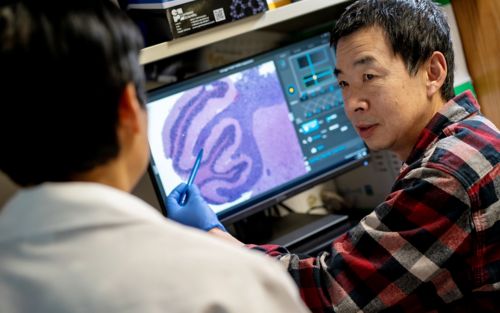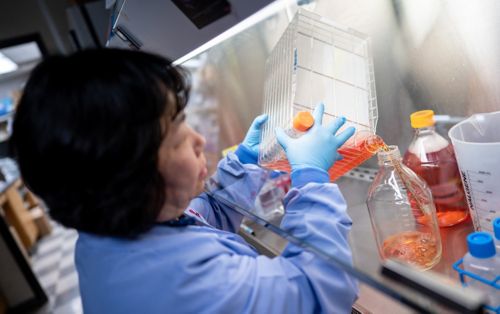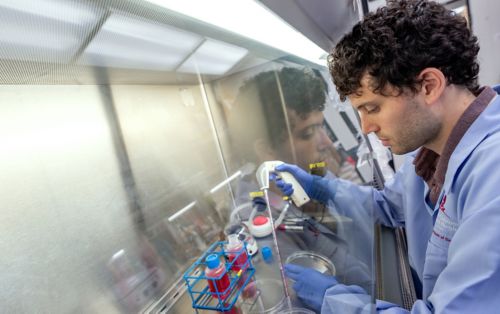St. Jude Family of Websites
Explore our cutting edge research, world-class patient care, career opportunities and more.
St. Jude Children's Research Hospital Home

- Fundraising
St. Jude Family of Websites
Explore our cutting edge research, world-class patient care, career opportunities and more.
St. Jude Children's Research Hospital Home

- Fundraising
Andrew M. Davidoff Lab
Investigating gene therapy for monogenic disorders and novel therapeutics for pediatric solid tumors
About the Davidoff lab
Treatments that target the genetic root of disease offer potential transformatic therapeutic options. Gene therapy is a treatment approach that replaces a patient’s missing or abnormal disease-causing genes. Our laboratory’s translational research program explores the development of adeno-associated virus vectors to employ gene therapy in the treatment of hereditary genetic disorders, such as hemophilia. Beyond this effort, our other area of interest evaluates the effectiveness of new targeted agents for the treatment of neuroblastoma and other pediatric solid tumors.

Our research summary
Our laboratory’s work is translational in nature, involving basic science pursuits and then incorporating those lab-based discoveries in clinical trials and patient care. Our research, conducted within the Department of Surgery, currently pursues two major lines of investigation—gene therapy for monogenic disorders such as hemophilia and novel translational therapeutics for pediatric solid tumors, particularly neuroblastoma.
The first line of translational research inquiry in our lab centers on gene therapy for monogenic disorders. Gene therapy as a treatment for hemophilia has the potential to transform medicine throughout the world. Our research aims to bring the single-infusion gene therapy treatment we developed to several low- and resource-limited countries. Our work in this area led to an award from St. Jude as part of its innovative Blue Sky Research Program.
As the results of our studies lead to gene therapy clinical trials, we continue our basic science research to discover and develop adeno-associated virus vectors and explore innovative ways to enhance the effectiveness of existing vectors. We also strive to develop a method to produce these vectors efficiently and on a large scale.

The second line of research investigation in our lab uses state-of-the-art technologies and methodologies to identify new drugs that target neuroblastoma and other underserved pediatric solid tumors. We have an extensive library of patient-derived materials, such as tumor tissue and xenografts, that are a valuable resource for testing new reagents. Our lab has a particular interest in epigenetic targets and is using an RNA splicing inhibiting agent that has shown significant effectiveness in our preclinical models of neuroblastoma. In the future, we hope to collaborate with colleagues at St. Jude and in industry to translate these encouraging results into an early-phase clinical trial.
Our laboratory’s translational approach guides our efforts as we seek to discover and implement the most effective therapies that precisely target the root of monogenetic diseases and childhood cancer.

Publications
Contact us
Andrew M. Davidoff, MD
Member; Chair, Department of Surgery
MS 133, Room IA2308
St. Jude Children's Research Hospital
Memphis, TN, 38105-3678 USA
Follow Us


Memphis, TN, 38105-3678 USA GET DIRECTIONS